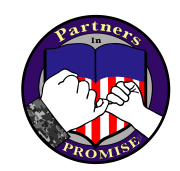
EFMP Advice from Behind the Frontlines
| Resource Partners, Resources
by Carla Wyrsch
After several years of working for Marine Corps Community Services, I was excited that with our upcoming PCS, I landed a job at our new duty station with the Exceptional Family Member Program (EFMP). I would have dual job responsibilities; Training Education and Outreach Specialist and Family Case Worker.

Ever since I had the opportunity to shadow the manager of the Marine Corps’ EFMP Headquarters in Quantico, Virginia, I had desired to be a part of this organization. I was overcome with anticipation, had a fire in my belly, and couldn’t wait to get started! So, how can my passion for helping families and my experience working for and having friends enrolled in EFMP help you? I am here to provide you with some recommendations about the program from behind the front lines.
Understanding the Purpose of EFMP
Before you can fully benefit from the EFMP, you must understand why the program exists. In general, it is a mandatory enrollment program that works with military and civilian agencies to provide comprehensive and coordinated community support, housing, educational, medical, and personnel services to families with special needs. The EFMP aims to support military families with special medical and educational needs as they navigate the challenges that accompany frequent moves. The program has three components:
- Identification and enrollment of a family member with special medical or educational needs;
- Assignment coordination to determine the availability of services at the projected duty station;
- Support to help families identify and access programs and services.
Through these components, headquarters of the EFMP will effectively coordinate permanent change of station (PCS) assignments that are both career enhancing for the service member and support the educational/medical needs of the enrolled family member. In addition to maintaining the continuity of care, enrollment develops partnerships with families that will educate family members, foster resiliency, cultivate community connections, and encourage self-advocacy skills.
Debunking Myths
We all know that knowledge is powerful. Debunking the negative stigma associated with EFMP enrollment will allow you to address the misconceptions associated with the program while accessing the resources provided.
Myth 1: Enrollment in EFMP affects career progression.
A study conducted in 2016 by the Marine Corps Operational Analysis Division, found that there is no truth to this stigma. In fact, the study determined there was little evidence of any negative impact of EFMP enrollment on the Marine’s career progression and promotion. The study found that Marines with enrolled family members served slightly longer and achieved a slightly higher grade than their non-EFMP active duty peers.
Myth 2: Being enrolled in EFMP means the service member can’t…. :
EFMP enrollment does not dictate whether a service member can deploy or if they can receive orders to OCONUS duty stations. Both of these factors are determined by the needs of individual service branches. The Headquarters’ office of the EFMP will screen potential duty stations to determine if resources and services are available for enrolled family members. However, if services are not available, but the service member is still needed, he/she could receive unaccompanied orders. In this case, the EFMP will support the family through this transition and during the duration of the orders.
Myth 3: The family will receive a label:
Enrollment in the program is not an element of the Manpower Management System, individual records, or parent command records. Commands will not have access to specific information regarding a family’s enrollment and will only be contacted if the service member is not responding to requests to update paperwork.
Educate & ADVOCATE, ADVOCATE, ADVOCATE!
While enrollment in the EFMP is a Department of Defense requirement, you can decide how much involvement you choose to have beyond assignment coordination. If you are versed in the services provided, even if your local EFMP office has not offered certain services, you can advocate for what is needed by yourself or your family member. At a minimum most EFMP offices provide the following services:
- Advocacy & Education
- Educational Support
- Housing Support
- Relocation Support
- Respite Care
Don’t see a service you or your family member could benefit from? Have an idea for an event or program that would benefit your and other families? Aren’t receiving the assistance your family needs? Reach out to your local office and continue to advocate by utilizing the chain of command within EFMP until you receive a response to your request. In addition, services such as the Interactive Customer Evaluation (ICE) website, provides an effective way to sing the praises for or bring attention to unresolved issues you may have with your local EFMP office. In addition to resources at your local office, organizations such as Military One Source and the Department of Defense’s (DOD), Office of Special Needs (OSN) provide online/virtual resources such as EFMP and Me and EFMP Resources, Options and Consultations (ROC). If you still are at a loss, partnering with programs such as Partners in PROMISE, may provide the support and direction you are looking for to have your needs met.
Give Each Duty Station a Fair Shot

While my friends and I have identified and discussed that one of the difficulties with the EFMP is the lack of consistency across not only branches but locations, your next duty station has the potential to be the best yet. One of the benefits of the current inconsistency among programs is your next duty station can surpass your expectations. It may have a staff that goes above and beyond to serve families. They may have access to a trove of community resources.
However, if that is not the case and if the only program offered at your new duty station is ice cream socials and your child is not able to participate due to an allergy, reach out to your local office and request an accommodation for similar programs in the future. If the programs being offered are not benefiting your family or another enrolled family you know, advocate for additional or new programs. If you feel that your voice is not being heard, utilize the recommendations above to get the needs of your family met.
Know that Change Is Possible
If you have been enrolled in the program for more than one duty station, you more than likely have noticed inconsistencies between duty stations. If you have friends who are enrolled in the program in other branches, you have probably discussed the lack of consistency amongst the branches as well. Federal law requires the DOD’s Office of Special Needs (OSN) to develop a uniform policy that includes requirements for:
- developing and updating a services plan for each family with special needs and
- resources, such as staffing, to ensure an appropriate number of family support providers.
So, if this policy exists, why are there still significant deficits and inconsistencies within the EFMP? While OSN’s development of this policy has laid groundwork in the effort to streamline services across branches and duty stations, the DOD relies on each service branch to determine its compliance with the policy, resulting in the inconsistencies we experience today.
We know that financial and legal restrictions limit government programs from providing needed services. We also know that in order for change to happen, we need to be on the same page about what is possible and what we CAN change. The OSN and other organizations such as the Government Accountability Office and Partners in PROMISE have made significant strides in the last several years to better the program.
Navigating the complex life of a military family in its own right is challenging. The addition of caring for a family member with special needs adds a few more twists and turns to the road map. Having a good understanding of how the EFMP can help provide direction is vital to a family’s success. In addition to understanding the program and its services, becoming a strong advocate for yourself and family, along with forging partnerships with outside organizations will help each family member grow and thrive in this lifestyle.

Carla Wyrsch is a Marine Corps’ spouse and mother of two. She has devoted her career to educating and advocating for children with disABILITIES. Her experience spans a variety of settings, including residential treatment facilities, military bases, public schools, and the Cleveland Clinic Children’s Learner School for Autism. In addition to her work with children, she enjoys providing coaching sessions to both professionals and parents in the areas of behavior modification and other best practices.





Leave a Reply